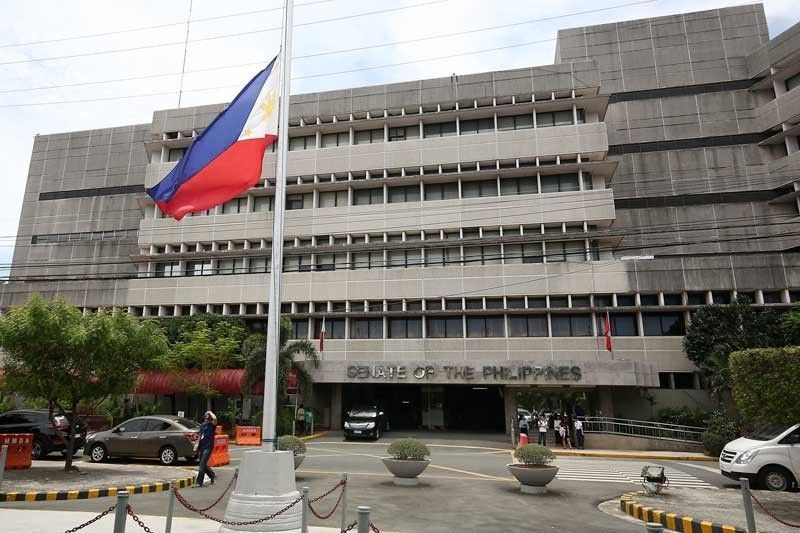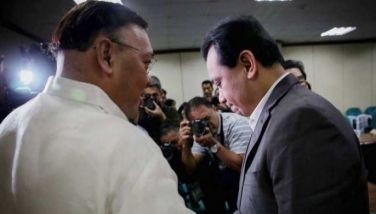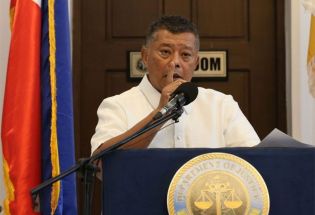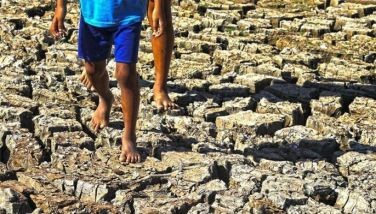Senators see more Maharlika loopholes

MANILA, Philippines — Senators saw several loopholes in the proposed multibillion-peso Maharlika Investment Fund (MIF) during a hearing on the bill yesterday, including the lack of return on investments or ROI for state-run banks, as well as composition of the board that will run the sovereign fund.
During the Senate committee on banks, financial institutions and currencies hearing, lawmakers raised concerns on certain provisions of the MIF, the country’s first sovereign wealth fund that aims to stimulate economic growth and social development.
One of these is the lack of ROI for the Land Bank of the Philippines and Development Bank of the Philippines that will infuse P50 billion and P25 billion, respectively, to the fund.
Before the panel chaired by Sen. Mark Villar, economic managers led by Finance Secretary Benjamin Diokno enumerated the benefits of the fund, which is patterned after similar sovereign wealth investments of other countries, including developing economies.
National Treasurer Rosalia de Leon, who made the presentation on behalf of the economic cluster, said there were only few sovereign wealth funds decades ago but now more than 50 countries have established their own, given the income and development projects such investments can generate.
Sen. Francis Escudero, however, argued that there is no provision in the bill that Landbank and DBP will have a part in the net profit, noting that it is like forcing the hands of the state-run banks to give money.
“If that is the case, then this is an interest-free borrowing from Landbank and DBP. But they should have a respectable ROI,” Escudero said.
Escudero also warned the MIF bill that may be passed in the Senate would likely be vastly different from the one passed in the House of Representatives in December.
“I am telling you already, the bill will be delayed because there are so many gaps and loopholes in it,” Escudero told the economic managers.
The senator said the bill seeks to exempt the Maharlika Investment Corp. (MIC), which will manage the MIF, from the Governance Commission on Government-owned and Controlled Corporations that should be an additional safeguard in screening members of the board and checking the performance of the proposed corporation.
He also opposed the sweeping tax exemptions for the MIC that he warned would create more problems and could be abused.
“Why wreak havoc on the system by exempting this entity? And I think this is the first time, to my knowledge, that a single entity would have such sweeping (tax) exemptions,” Escudero said.
Escudero suggested what he said was a simpler way where the MIC would pay all the necessary taxes and the law could have a proviso that all taxes paid would be returned to the corporation.
Sen. Sherwin Gatchalian expressed apprehension that if the fund goes sour it would ultimately be the taxpayers who will pay for the possible losses.
Sen. Risa Hontiveros warned the MIF may become a “liability fund” that will balloon the nation’s already enormous foreign debt and make life harder for present and future generations of taxpayers.
“We should perhaps instead call the MIF the ‘Sovereign Liability Fund’ as it will be effectively funded by liabilities. There is also no assurance that the cost of borrowing will be lower than the yield to be generated by the SWF,” Hontiveros said.
Clarification
De Leon admitted that the bill will need further clarification and that there will definitely be dividends to be declared to the banks because of their contribution to the fund.
“The overall purpose for the establishment of the MIF is to optimize the use of government financial assets and promoting their intergenerational management in order to maximize returns and advance the funds developmental objectives,” De Leon said.
She cited the Indonesia Investment Authority that started only in 2021 with an initial funding of $5 billion but has generated investments valued at $20.5 billion despite having budget deficits like the Philippines.
She said the Indonesian fund partnered with global infrastructure investment funds to generate additional equity. Such an arrangement would also allow the country to benefit from technology transfer and capability to run large-scale infrastructure projects.
Villar asked whether investing in equity would be better than borrowing to fund major projects, De Leon replied: “Definitely.”
“Debts we have to repay but in equity, we have skin in the game in the project… eventually, instead of the Philippines borrowing for infrastructure, the government can implement and execute projects that national government should be funding itself,” she said.
Gov’t assets listed
The government has listed various government assets that are eyed to be privatized to serve as contributions for the Maharlika fund.
At the same Senate hearing, Diokno said there are various sources of funds from government assets that can be sold to the private sector.
“Some of our assets, we privatize them and use them for our budget. We have a summary of government assets for disposal,” Diokno said.
Proceeds from the privatization of government assets are part of the subsequent annual contributions to the fund. Others are from the central bank, Philippine Amusement and Gaming Corp., royalties from mining and borrowings.
Diokno said one of the assets eyed is the 2.2-hectare Mile Long property in Makati. Former president Rodrigo Duterte ordered the Department of Finance to redevelop Mile Long in 2020.
“We can use that as a source or sell it altogether,” Diokno said.
“We also have power plants like the Caliraya, we can sell that and use as part of the fund,” he said.
Diokno was referring to the Caliraya-Botocan-Kalayaan hydroelectric power plant of the Power Sector Assets and Liabilities Management Corp.
The finance chief also reiterated that the mining sector will contribute to the fund.
“We are opening up the mining sector after closing it for more than a decade. Part of the proceeds of royalty from the mining sector can be used for this,” Diokno said.
Further, he said the government “might consider” other real estate properties in New York and Japan as part of the fund.
- Latest
- Trending































